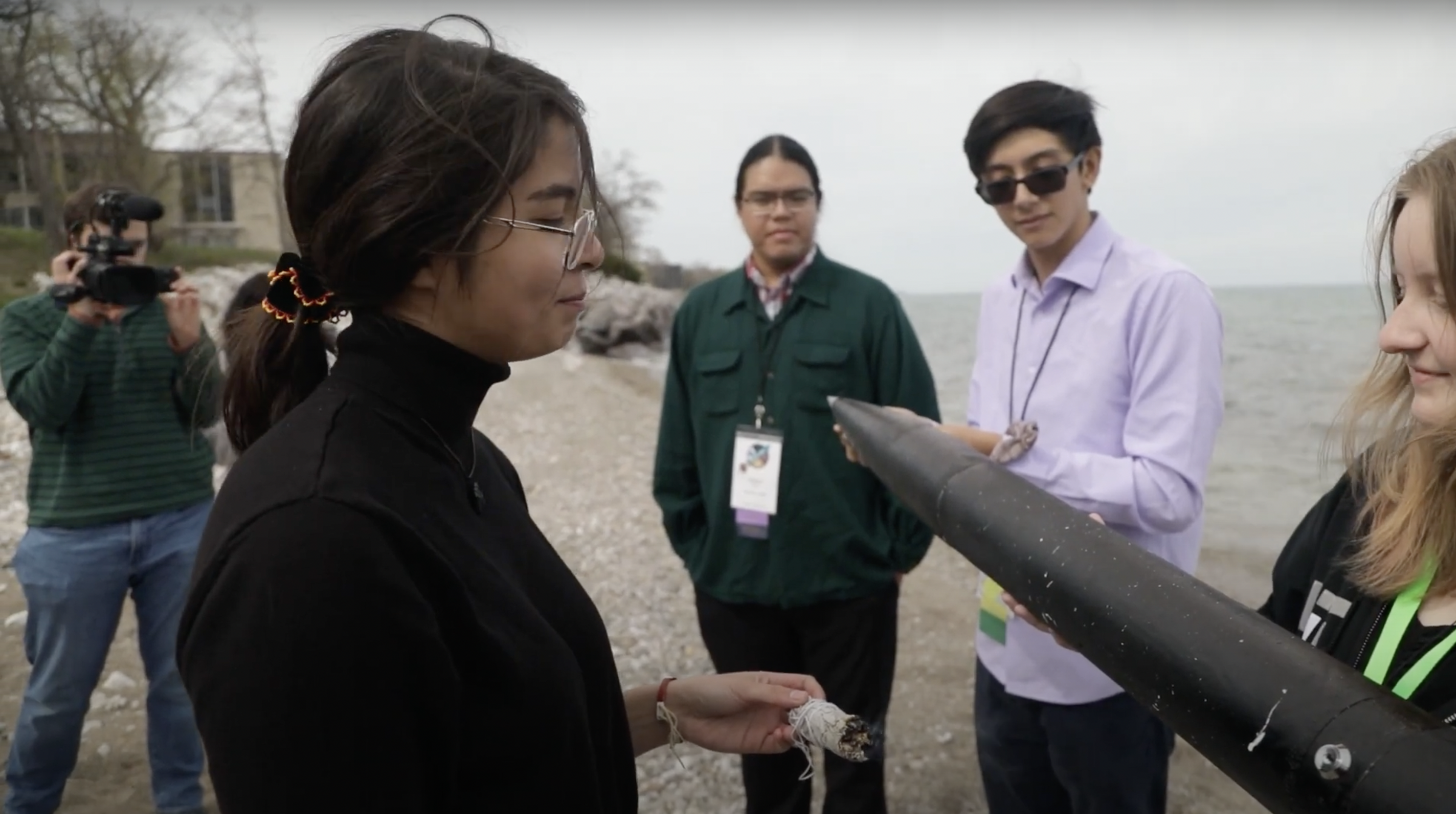Through documentary filmmaking, science writing graduate students build storytelling skills
GPSW students produce short-form documentaries exploring topics in science
 A still image from Smudge Before Launch, one of this year's Graduate Program in Science Writing documentaries
A still image from Smudge Before Launch, one of this year's Graduate Program in Science Writing documentaries
"Creating a powerful documentary requires honing your material to a fine edge. There’s no room for wasted motion, and doing the work at a high level requires thinking through what each scene and each line of dialogue need to do." - Thomas Levenson, science writing professor
As part of MIT's Graduate Program in Science Writing, students are required to take 21W.824 Making Documentary.
The documentary course offers practical tools for students in the program, says science writing professor Thomas Levenson, giving them the foundation on which to build storytelling skills across media.
"Knowing how to produce, shoot, and edit video is an increasingly valuable part of the popular science communicator’s tool kit. The skills the students learn extend beyond the documentary genre, as the course emphasizes production as a process, and not just the technical aspects of it (how to use a camera, take sound, edit..). That means they learn both how to think in visual storytelling ways, and to organize a complicated mix of resources, both inputs and outputs, to achieve the desired effect at the end of the process, a persuasive visual or multimedia piece of work."
But Levenson says the course also delivers an important set of insights on the core of what the science writing program aims to impart on students: storytelling, and in particular, telling compelling and accessible stories about science.
"Film and video form an unforgiving medium. Creating a powerful documentary requires honing your material to a fine edge. There’s no room for wasted motion, and doing the work at a high level requires thinking through what each scene and each line of dialogue need to do. We’ve found over the years (and certainly this was my experience as I moved from a purely prose based approach to science writing to documentary) that working on projects like these helps our students be better writers on the page, even if they never pick up a camera again after completing this class."
At the end of the course, students work in teams to produce short-form documentaries.
Levenson says this year's documentaries - Smudge Before Launch and Spatial Justice - express the reach, range, and importance of the MIT approach to science writing.
"The whole endeavor of 'science' is our subject, from the (great) results and rewards it can offer to the way it works as a human enterprise within our larger society," says Levenson. "I’m very proud of the students this year: they tackled difficult subjects—hard not just in working out their narratives and themes, but also as matters of craft, how to get big ideas across in a very demanding medium—and they did so at a very high level."
Here are this year's student documentaries from the Graduate Program in Science Writing:
Smudge Before Launch
Produced by William Von Herff, Vivshva Nalamalapu, Elizabeth Gamillo, and Allison Guy
Spatial Justice
Produced by Daelin Brown, Phie Jacobs, and Abdullahi Tsanni Nuhu